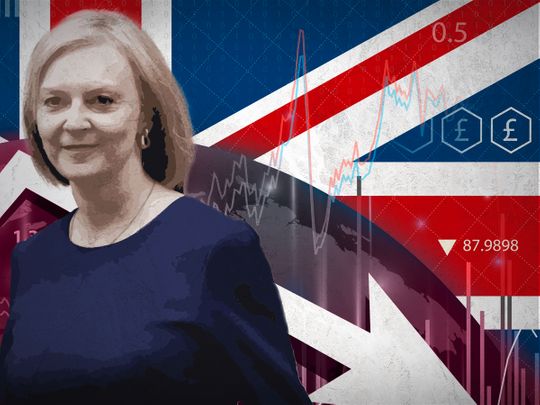
So, let me get this right: The Chancellor the Exchequer in the United Kingdom is fired for doing exactly what his boss, Liz Truss told him to do?
Just 38 days into his job, Kwasi Kwarteng, was summoned back to London from Washington — where he was meeting the International Monetary Fund in a face-to-faces attempt to dial down the searing criticism of the budget he and Truss came up with over that period — to be told that he was fired.
I had to check the history books to find that Iain Macleod was actually the chancellor with the shortest term. Appointed by Sir Edward Heath, he died from a heart attack in 11 Downing Street just 30 days after being appointed.
Kwarteng has had a little better luck. Since he and Truss delivered their fateful budget on 21 September — three weeks ago — it’s the financial markets that have had a heart attack. I will be generous in offering that in three weeks, the cost to the British taxpayer has been close to £200 billion — and that’s after two screeching U-turns on key policy elements of that budget.
For anyone looking for a mortgage, having a mortgage coming up for renewal, or planning for retirement with investments in the bond market, well … the price had been incalculable. And certainly been the cause of cardiac stress if not outright cardiac failure.
All down to the PM
That failure is all down to Truss. To Kwarteng too — but since noon Friday he’s not there anymore. Fired, for doing exactly what he was asked to do.
Truss? Yep, she still has responsibility for the UK government. Since noon Friday, actually no, since 3pm Friday when Truss gave the most awkward press conference of our time — it thankfully lasted just eight minutes — snap polls suggest that just 19 per cent of Brits would vote Conservative now. And just 6 per cent believe she’s the best person to lead the country right now.
And by the time you read this, dear readers, there’s every chance those dismal poll numbers will be even lower. How low? Well, they can’t sink into negative territory, so that’s at least a good thing.
Since June, when former Prime Minister Boris Johnson was given the heave-ho by his Conservative MPs, there have been four Chancellors of the Exchequer. Four!
And two separate warnings from the IMF, two major U-turns on Truss fiscal policy, a more than 4 percentage point rise in interest rates and that £200 billion increase in borrowing over the last three weeks alone. Oh, and two downgrades by bond rating agencies.
Political and economic parapets
Let me remind you, dear readers, that we are not talking about some Third World emerging economy here run by generals. No. This is the UK — the sixth or seventh — depending on how you read the data — largest economy globally.
Never before has so much been owed by so few over such a short time.
I listened to the remarkable events unfold Friday as I drove from Manchester to Birmingham. I missed a turn-off on the motorway because I was too busy shouting at the sheer tripe being doled out by the few Cabinet ministers who dared stick their head above the political and economic parapet to defend the actions of the Prime Minister.
Some of the descriptions being used by analysts and members of her own party alike likened this crisis to that of a circus, only the ringmaster has left and the lions were devouring the acrobats. The Conservatives have a majority of some 70 seats now in this current parliament. That’s on paper.
The reality is that this is a government so badly fractured, so dizzy, so divided, that it has little if any hope of passing any legislation should it somehow manage to survive the remaining two years left in its mandate. Please tell me this agony will not last that long.
Please tell me that there are adults in the room. Heck, Johnson must be licking his lips at the prospect of returning to Downing Street if the party can organise some way of ditching their leader of weeks.
This is a nation in need of leadership, decisions and direction. What it has instead is a lame duck leader.








